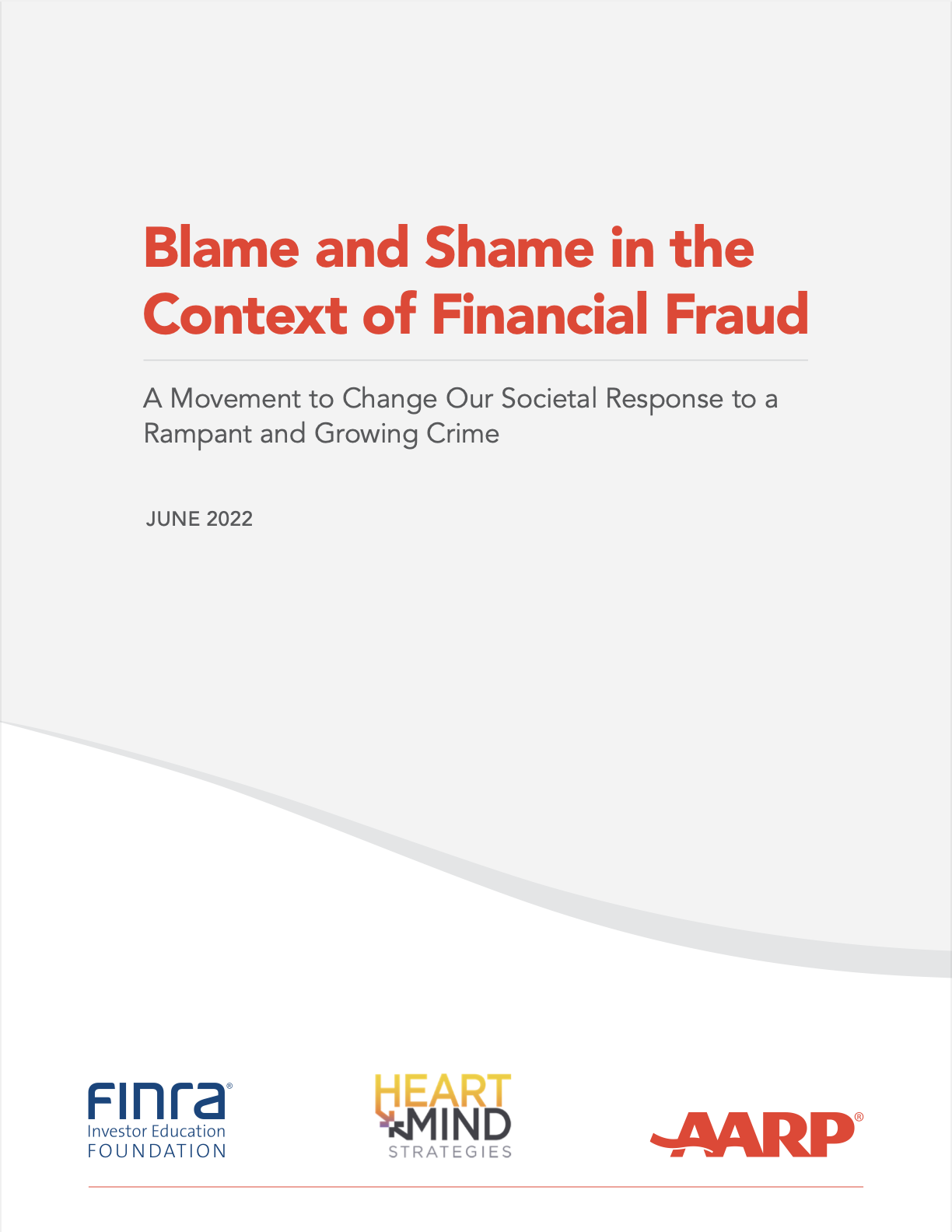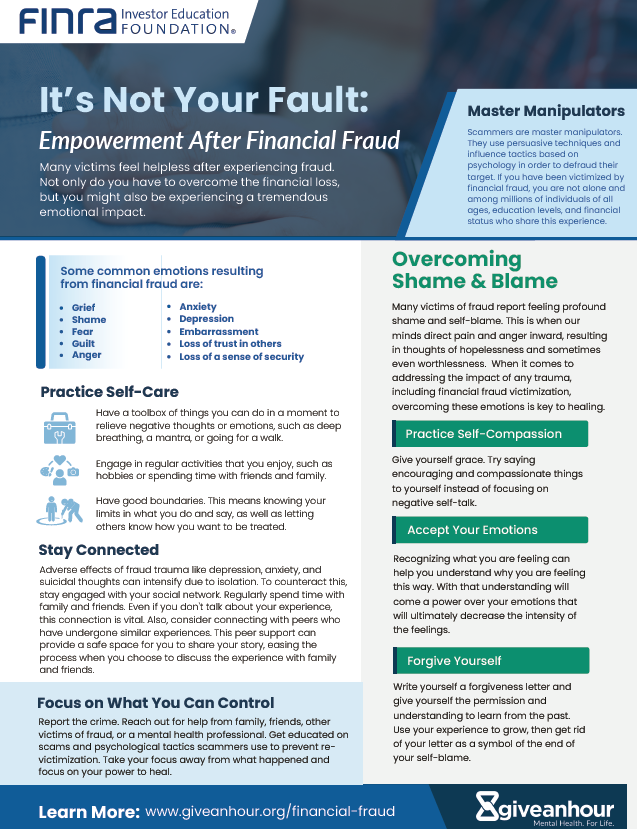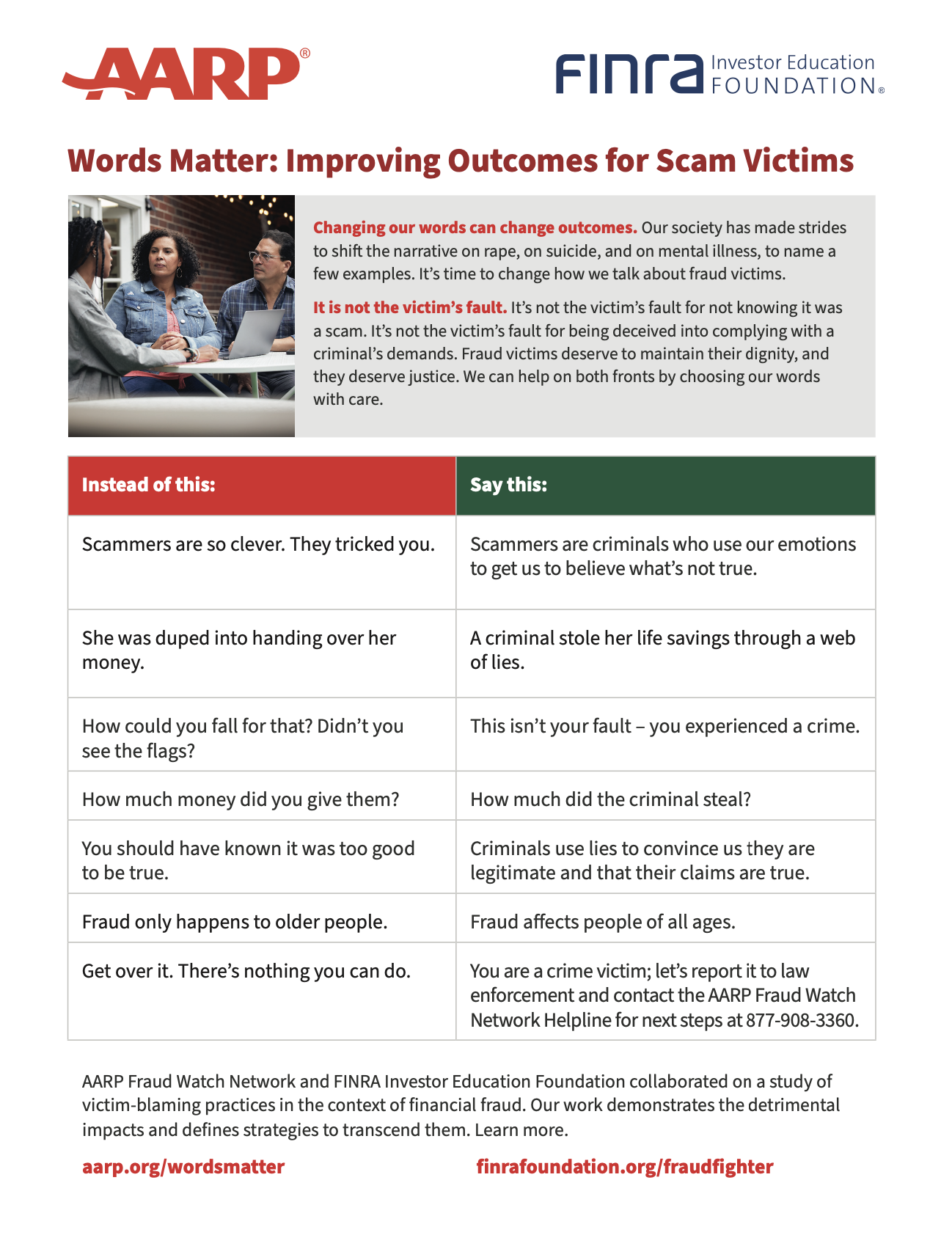Prevention is an important part of combating financial fraud. However, fraud claims victims in spite of preventive methods. When fraud occurs, many victims are left to cope with the aftermath of compromised identities and financial loss, as well as a painful range of emotions including guilt, embarrassment, and intense shame.
This resource from the FINRA Foundation and the National Center for Victims of Crime provides a roadmap for consumer advocates to assist victims in the wake of a financial crime.
Taking Action: An Advocate’s Guide to Assisting Victims of Fraud
This resource from the FINRA Foundation and the National Center for Victims of Crime provides a roadmap for consumer advocates to assist victims in the wake of a financial crime.
Provider Trainings and Peer Support for Scam Victims
To address the non-financial impacts of fraud victimization, the Foundation and Give an Hour are building supports within the mental health community. The program involves both provider trainings and peer support programs for victims.
Recovery Group for Romance Scam Survivors
The Foundation works with the Cybercrime Support Network to support individuals impacted by romance imposter scams. CSN offers a free, counselor-led Romance Scam Recovery Group in a safe virtual environment for individuals to work through the loss, embarrassment, and isolation that can accompany romance scams.
Hear from romance scam victims how peer support mitigates the emotional impacts of the scam.
Words Matter: Improving Outcomes for Scam Victims
Victim-blaming language, even when used unintentionally, helps no one and harms everyone. When we change how we talk about fraud and remove language that blames victims, we demonstrate more compassion and understanding of the victim experience. And that can lead to more victims reporting to law enforcement and seeking needed support.
Blame and Shame in the Context of Financial Fraud
 The FINRA Foundation collaborated with the AARP Fraud Watch Network to explore how victim blaming exacerbates the deep sense of shame and low self-esteem many financial fraud victims experience and how it shifts the focus away from perpetrators, allowing these horrific crimes to flourish.
The FINRA Foundation collaborated with the AARP Fraud Watch Network to explore how victim blaming exacerbates the deep sense of shame and low self-esteem many financial fraud victims experience and how it shifts the focus away from perpetrators, allowing these horrific crimes to flourish.
Reporting Scams
If you or someone you are assisting has been the victim of a scam, contact your local law enforcement office to file a police report. Also file online complaints through the FBI’s Internet Crime Complaint Center and the FTC’s Report Fraud portal.
For investment-related schemes, file a complaint with FINRA, the U.S. Securities and Exchange Commission, and your state or provincial securities regulator—or with any one of these regulators.


